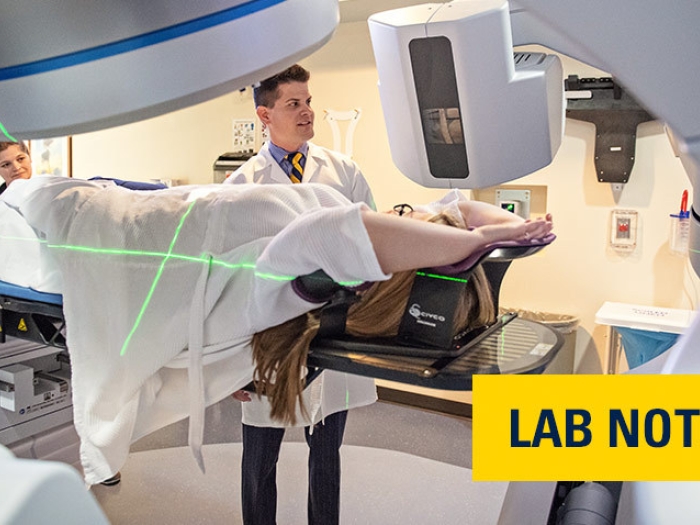Scaling back treatment can mean better quality of life for oropharynx cancer patients who qualify
5:00 AM
Author |

Some oropharynx cancer patients may qualify for less radiation treatments, according to a new study from experts at the University of Michigan Health Rogel Cancer Center. This could assist many patients in a quicker return to their normal lives.
Oropharynx cancer was historically related to smoking and alcohol use, but now most cases diagnosed in the United States are caused by the human papillomavirus (HPV). HPV+ oropharynx cancer is recognized as being biologically different from HPV negative cancer, with a better prognosis.
A standard treatment for oropharynx cancer involves seven weeks of daily radiation – a total of 35 treatments given over the course of five days per week – given with chemotherapy, which causes of side effects like pain, difficulty swallowing, dry mouth, and loss of taste.
However, most patients with HPV+ oropharynx cancer can be cured with chemoradiation and tend to be younger and healthier compared to those with HPV negative oropharynx cancer. According to the study? That means those patients both may not need the standard amount of treatment and risk being left with the long term toxicities from treatment.
“Since most patients with HPV+ oropharynx cancer respond very well to treatment and will be cured, there is significant interest in minimizing the amount of treatment they receive to decrease short term side effects and reduce the risk of long term complications,” said Samuel Regan, M.D., a radiation oncology physician at U-M Health.
“In this study, we hypothesized that patients who have an early response to treatment have more favorable disease that is responsive to radiation, and they could therefore stop early and receive less chemoradiation. Patients who didn't respond quickly still got the standard treatment to ensure we don't compromise the chance of curing their cancer,” adds Michelle Mierzwa, M.D. the primary investigator of the study and associate professor of radiation oncology at U-M Health.
Experts found that patients who received de-escalated treatment had significantly less weight loss after treatment, tended to need a feeding tube less often, and experienced less worsening of symptoms or less severe symptoms. The study demonstrated that de-escalated chemoradiation is feasible for some patients, and that recurrence rates for patients treated on the trial are similar to those already recorded at Michigan Medicine.
Though additional research on treatment will be needed, Regan says de-escalated treatments, can make a meaningful difference on a patient’s quality of life. Mierzwa adds that further studies are needed to verify longer term outcomes in these patients.
"Safely decreasing the amount of chemoradiation needed means that patients could tolerate treatment better and may return back to their normal lives sooner, while keeping the risk of cancer returning low,” Regan said.
Sign up for Health Lab newsletters today. Get medical tips from top experts and learn about new scientific discoveries every week by subscribing to Health Lab’s two newsletters, Health & Wellness and Research & Innovation.
Sign up for the Health Lab Podcast: Add us on Spotify, Apple Podcasts or wherever you get you listen to your favorite shows.

Explore a variety of health care news & stories by visiting the Health Lab home page for more articles.

Department of Communication at Michigan Medicine

Want top health & research news weekly? Sign up for Health Lab’s newsletters today!





